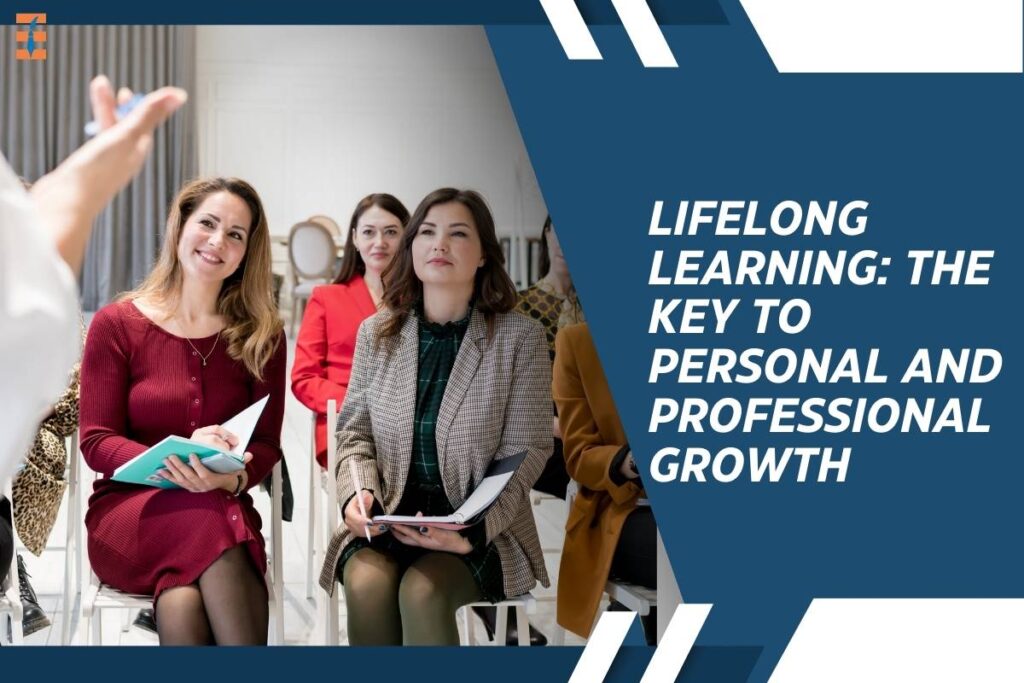In today’s rapidly evolving world, the concept of lifelong learning has gained prominence as individuals seek to adapt to technological advancements, changing job markets, and shifting societal demands. It encompasses the continuous acquisition of knowledge, skills, and experiences throughout one’s life, beyond the confines of formal education. From pursuing new hobbies to mastering new technologies, it offers countless opportunities for personal and professional growth.
The Importance of Lifelong Learning:
In a world characterized by constant change and innovation, the ability to learn and adapt is essential for success. This not only enhances individual knowledge and skills but also fosters creativity, critical thinking, and resilience. Moreover, lifelong learners are better equipped to navigate career transitions, seize new opportunities, and stay relevant in an increasingly competitive job market.
Benefits of Lifelong Learning:
1. Personal Growth and Development
It enables individuals to explore their interests, passions, and talents, leading to greater self-awareness and personal fulfillment. Whether learning a new language, mastering a musical instrument, or delving into philosophy, lifelong learners derive immense satisfaction from the pursuit of knowledge and the sense of accomplishment that comes with it.
2. Professional Advancement
In today’s knowledge-based economy, continuous learning is essential for career advancement and professional success. Lifelong learners are more adaptable, innovative, and resilient in the face of change, making them valuable assets to employers. By staying abreast of industry trends, acquiring new skills, and pursuing professional development opportunities, individuals can enhance their employability and unlock new career opportunities.
3. Improved Cognitive Function
Engaging in lifelong learning has been shown to have numerous cognitive benefits, including improved memory, concentration, and problem-solving skills. Learning new concepts and challenging oneself intellectually can help keep the mind sharp and agile, reducing the risk of cognitive decline as individuals age.
Strategies for Lifelong Learning:
1. Set Clear Goals and Objectives

To make the most of learning opportunities, it’s essential to establish clear goals and objectives. Whether it’s acquiring a new skill, earning a certification, or pursuing a passion project, having a roadmap in place can help individuals stay focused and motivated on their learning journey.
2. Embrace Diversity in Learning
It encompasses a wide range of activities, from formal education to informal learning experiences. Embracing diversity in learning means being open to exploring different subjects, methodologies, and learning environments. Whether it’s attending workshops, taking online courses, or participating in community-based programs, there are countless avenues for lifelong learning.
3. Seek Feedback and Reflection
Feedback and reflection are integral components of the process. Seeking feedback from peers, mentors, and instructors can provide valuable insights and perspectives, helping individuals identify areas for improvement and growth. Similarly, taking time to reflect on one’s learning experiences and accomplishments can foster self-awareness and enhance the overall learning journey.
Challenges and Barriers to Lifelong Learning:
1. Time Constraints

One of the most significant challenges it is finding the time to pursue educational opportunities amidst busy schedules and competing priorities. Balancing work, family, and personal commitments can make it challenging to devote time to learning activities.
2. Financial Constraints
Cost can also be a barrier to it, particularly for individuals with limited financial resources. Tuition fees, course materials, and other expenses associated with educational programs can pose significant barriers to access for many people.
3. Fear of Failure
Fear of failure or inadequacy can also prevent individuals from engaging in it. The fear of not succeeding or being judged by others can deter individuals from taking risks and pursuing new learning opportunities.
Overcoming Challenges to Lifelong Learning:
1. Time Management Techniques
Effective time management is crucial for incorporating it into busy schedules. By prioritizing learning activities, setting aside dedicated time for learning, and breaking down larger goals into manageable tasks, individuals can make the most of their time and progress toward their learning objectives.
2. Exploring Affordable Learning Options
While cost can be a barrier to lifelong learning, there are many affordable or even free educational resources available. From online courses and tutorials to public libraries and community centers, individuals can explore a variety of options to acquire new knowledge and skills without breaking the bank.
3. Cultivating a Growth Mindset
Cultivating a growth mindset is essential for overcoming the fear of failure and embracing it. Instead of viewing challenges as insurmountable obstacles, individuals with a growth mindset see them as opportunities for growth and learning. By reframing setbacks as learning experiences and celebrating progress, individuals can build resilience and confidence in their ability to learn and grow.
The Role of Technology in Lifelong Learning:
1. Access to Online Learning Platforms
Advancements in technology have democratized access to education, making learning opportunities more accessible than ever before. Online learning platforms such as Coursera, Udemy, and Khan Academy offer a wide range of courses on diverse topics, allowing individuals to learn at their own pace from the comfort of their homes.
2. Interactive Learning Experiences
Technology has also facilitated interactive and immersive learning experiences, enhancing engagement and retention. Virtual reality (VR) and augmented reality (AR) technologies, for example, allow learners to explore virtual environments, simulate real-world scenarios, and interact with course material in new and innovative ways.
3. Personalized Learning Tools

Technology-enabled personalized learning tools use algorithms and data analytics to tailor educational content to individual learning needs and preferences. Adaptive learning platforms can assess a learner’s proficiency level, identify areas for improvement, and dynamically adjust the pace and difficulty of instruction to optimize learning outcomes.
Conclusion: Embracing Lifelong Learning in the Digital Age
In conclusion, lifelong learning is a journey of continuous growth and development that empowers individuals to adapt to change, pursue their passions, and achieve their full potential. By overcoming challenges, embracing a growth mindset, and leveraging technology-enabled learning tools, individuals can embark on a journey that enriches their personal and professional lives.
As we navigate the complexities of the digital age, the importance of lifelong learning has never been greater. By embracing the opportunities afforded by technology and cultivating a mindset of curiosity and exploration, we can unlock new opportunities, expand our horizons, and embark on a lifelong journey of learning and discovery.
Also Read: Adaptive Learning: Revolutionizing Education in the Digital Age










